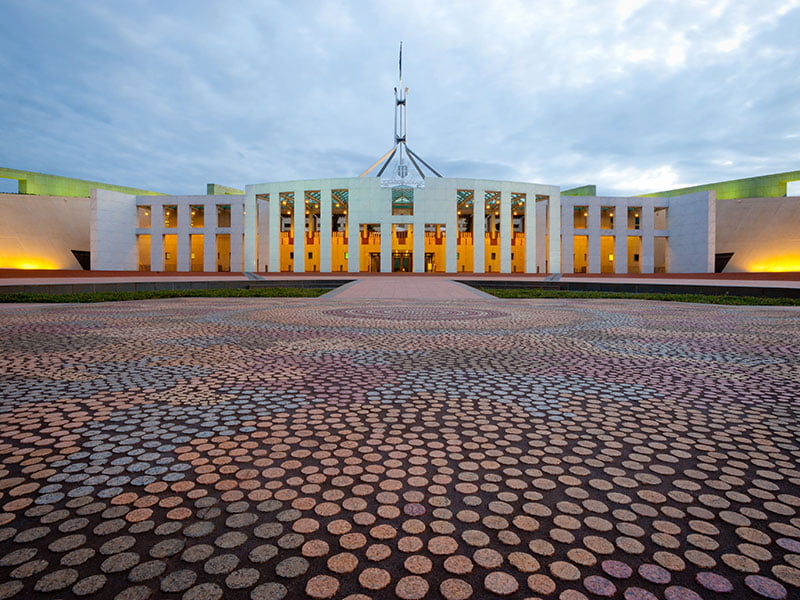As the federal election looms, the final bursts of campaign fervor, news coverage and election chatter spreads nationally. For many people, this information is disseminated on online platforms and social media, yet technology policy is noticeably absent from the election campaigns of many candidates.
As we continue to live our lives in a digitally mediated world, technology policy and reform needs to be a core agenda for the next government, as persistent issues caused by Big Tech and its impact continues to plague Australians.
While the Morrison government kicked off an ambitious technology reform pipeline over the last couple of years, sensing that it may be a unique opportunity to win over constituents, this has fizzled out recently with key reforms like the Privacy Act update delayed indefinitely.
The globally significant News Media Bargaining Code was a high point in Australia’s tech reform agenda, setting a precedent for other countries to force digital platforms to pay local publishers for news content.

The News Media Bargaining Code was the first regulatory initiative as part of the landmark Digital Platforms Inquiry, developed by the Australian Competition and Consumer Commission, with wide-ranging and comprehensive proposals in tackling Big Tech’s harmful market powers.
But after a strong start, the momentum of the Inquiry has petered out into half-hearted attempts at a Misinformation Code, and convoluted legislation aimed at addressing the prickly topic of online safety.
While updates to the Online Safety Act granting the eSafety Commissioner extra funding and powers were welcome, the topic of online safety and abuse were opportunistically usurped by self-serving politicians who saw it as a way of silencing their critics and hitting back at the online platforms, which has since de-platformed them.
Thus, the worthwhile conversation of online safety and abuse became twisted into selfish politics and borrowed American notions of ‘free speech’. This is evidenced by the so-called ‘anti-trolling bill’, framed as a way of addressing online abuse, but is really a defamation exercise which allows those with the means to pursue their critics via the courts.
There are still some inquiries and regulatory initiatives making their way through the public service administrative process, including inquiries around providing a choice screen in smart devices and marketplace corrections against Big Tech’s monopoly power.
The critical Privacy Act Review, showing early promise exploring wide-ranging proposals like increased data agency for individuals, more penalties for privacy breaches and expanded capabilities for the Privacy Commissioner has stalled due to internal problems with the Attorney General’s Office, and the election period.
Privacy is at the heart of Big Tech’s problematic business models and the resulting issues that occur, and this significant reform should be front and centre of the new government’s priorities.
To many people, it may seem understandable that highly technical and often conceptual issues around digital technology are not as urgent and immediate as topics like climate disasters, the economy, cost of living and public health. But the reality is that technology and digital platforms significantly influence those broader topics as well.
Misinformation is a particularly thorny problem, with digital platforms continuing to amplify, target and manipulate people’s content feeds, exposing them to inaccurate content which divide and polarise.
It is becoming harder to reach consensus and community, and critical topics that require a collaborative approach – like the climate and public health – are mired by a digital ecosystem where common ground and mutual understanding are more difficult than ever to achieve.
The largest technology companies are monopolists, which harm the economy and limit consumer choice, and if left unregulated and unchecked, will continue to swallow up new industries and dominate future ones in our increasingly digitally powered world.
Even the election process itself, a core pillar of our democracy is being undermined by the engagement at all costs model of most social platforms, which prize sensationalism and outrage over civility and respectful debate.
While bad actors, and often politicians themselves contribute to election misinformation, technology platforms are all too happy to amplify, target and algorithmically enhance these false messages.
Technology policy and technological reforms, therefore, are not side issues which can be deprioritised and ignored. They are critical and urgent, influencing broader subjects like the economy and public health and safety.
As Australians decide on who their next elected leaders will be, this next government will face a suite of significant regulatory proposals that seek to manage Big Tech’s harmful power. Let us hope that they will have the ambition and tenacity to see them through.
Jordan Guiao is a Research Fellow at The Australia Institute’s Centre for Responsible Technology.
Do you know more? Contact James Riley via Email.

